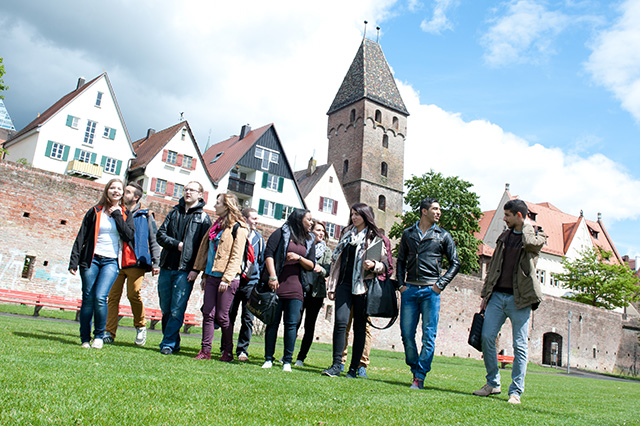Perfectly equipped
Our laboratories and classrooms are top of the range. Because if you want to make a difference tomorrow, you should study with todays most advanced methodology.
Students will acquire competent knowledge in the following areas:
Master of Science (M.Sc.)
120
4
Next application period: 1 February - 15 March.
We look forward to receiving your application.
Our laboratories and classrooms are top of the range. Because if you want to make a difference tomorrow, you should study with todays most advanced methodology.
Conventional lithium-ion batteries as they are currently used in smartphones and laptops have more or less reached their maximum storage capacity. This is why specialists in basic research and practical application in the Science City of Ulm are searching for the batteries of the future. CELEST, Germany's largest platform for electrochemical energy research, is a joint venture of Ulm University, the Karlsruhe Institute of Technology (KIT) and the Centre for Solar Energy and Hydrogen Research (Zentrum für Sonnenenergie- und Wasserstoff-Forschung; short: ZSW). With its sections 'lithium ion technology', 'energy storage beyond lithium' and 'alternative technologies for electrochemical energy storage', CELEST covers all current research topics of electrochemical energy storage. The platform has already celebrated its first outstanding success: As part of the Excellence Strategy of the federal and state governments, the researchers have received approval for their Cluster of Excellence 'Post Lithium Storage' (POLiS), which is being funded with around seven million euros annually for an initial seven years. Main focus of POLiS is the development of battery systems that eliminate the need for the finite materials lithium and cobalt.
Alongside of the ongoing research, the graduate school of electrochemical energy storage (GS-EES) will support up to 60 PhD students doing their research within the POLiS.
For further information: Cluster of Excellence - Post Lithium Storage
A great way to broaden your horizons in a subject area is to study at a foreign university. Students at Ulm University can apply for one or two semesters abroad at numerous universities, both throughout Europe as part of the ERASMUS programme and outside Europe. If lectures are not required, internships and theses at other universities are also possible.
Ulm University has exchange agreements with over 100 universities in 26 countries.
International Office
International Office
Exchange opportunities offered by the Department of Chemistry


Students playing Basketball

Students on their way to an excursion.

Learn on our modern campus.
Introduction to Ulm (English)
Graduation ceremony (German)
Study at Ulm University (German)
Positions in Industry:
Career in Academia:
Welcome to the most liveable city in Germany. In Albert Einstein's birthplace, science, leisure, top employers and culture come together in a unique way. Top locations and events such as the Ulmer Zelt, Nabada or the Donaufest attract visitors to the quaint streets. You feel at home here!
Copyright: City of Ulm
Subject-related student representatives
For students
School of Chemistry e.g. Time tables; exam dates ...

Zuständig für Bewerbung/Zulassung
